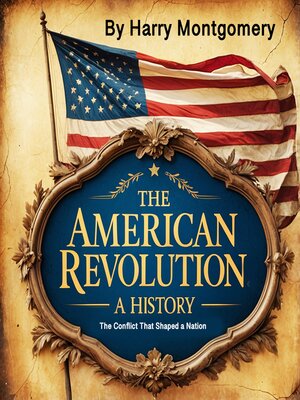The American Revolution
audiobook (Unabridged) ∣ A History--The Conflict That Shaped a Nation
By Harry Montgomery

Sign up to save your library
With an OverDrive account, you can save your favorite libraries for at-a-glance information about availability. Find out more about OverDrive accounts.
Find this title in Libby, the library reading app by OverDrive.



Search for a digital library with this title
Title found at these libraries:
| Library Name | Distance |
|---|---|
| Loading... |
The path leading to the American Revolution was shaped by a series of escalating conflicts between the British Crown and its colonies. Tensions began to rise in the mid-18th century as Britain sought to assert more control over its American territories. After the costly French and Indian War, Britain faced a significant national debt and turned to its colonies as a source of revenue. The imposition of new taxes on the colonies, including the Sugar Act of 1764 and the Stamp Act of 1765, marked the beginning of widespread discontent. These laws were seen by many colonists as an infringement on their rights, as they had no direct representation in the British Parliament. The rallying cry of "no taxation without representation" became a powerful slogan for those opposing the British measures.
In response to these policies, the colonists began organizing protests. The Stamp Act Congress of 1765 was a significant early attempt at collective action, bringing together representatives from nine colonies to challenge the Stamp Act. The colonists boycotted British goods, and the resistance movement began to take shape. The British government responded by repealing the Stamp Act in 1766, but the damage had already been done. The colonists had tasted the power of collective action, and their resistance continued to grow.
In the following years, Britain enacted other measures that further exacerbated tensions. The Townshend Acts of 1767, which imposed duties on glass, paper, and tea, were met with widespread opposition. Colonists viewed these taxes as another attempt to control them without their consent. The Boston Massacre of 1770, in which British soldiers killed five colonists during a confrontation, further fueled anger and resentment. The event was widely publicized by colonial leaders like Samuel Adams, who used it as a propaganda tool to rally support for the cause of independence.







